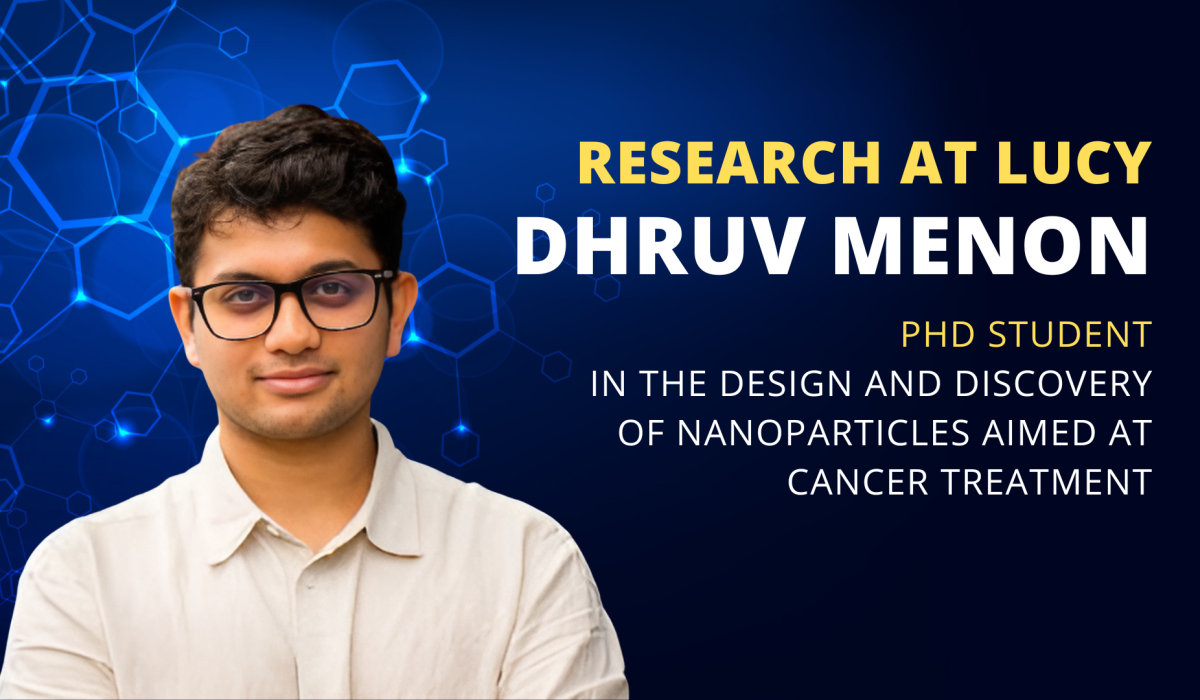Dhruv Menon, a PhD student at Lucy Cavendish College, specialises in the innovative design and discovery of nanoparticles aimed at cancer treatment
Based in the Department of Chemical Engineering and Biotechnology, Dhruv works under the supervision of Professor David Fairen-Jimenez, whose group works on revolutionizing the approach toward treating some of the most challenging forms of cancer.
Dhruv's focus is on the development of targeted drug delivery systems for cancers that are notoriously difficult to treat, such as those affecting the pancreas and the brain. It's a difficult challenge that Dhruv and his peers are facing, and the group focuses on use of nanoparticles for drug delivery.
Nanoparticles, particularly Metal-Organic Frameworks (MOFs), can be engineered to carry drugs and release them precisely at the tumour site, and have the potential to increase the survival rates of hard-to-treat cancers.
MOF’s are a mixture of metal ions and organic molecules, forming a porous structure that can hold, capture, or release chemical entities. This porosity is key to their functionality, allowing them to store substantial quantities of drugs and release them in a controlled manner upon reaching the tumour.
However, the path to creating the perfect MOF for drug delivery is complex. The vast landscape of potential inorganic and organic components offers an almost infinite array of materials to explore.
A significant aspect of Dhruv’s work involves understanding how these materials interact with biological entities, such as proteins. As well as this, Dhruv uses computational , including statistical mechanics, machine learning, and generative machine learning, all aimed at identifying, designing, or creating novel materials for drug delivery.




